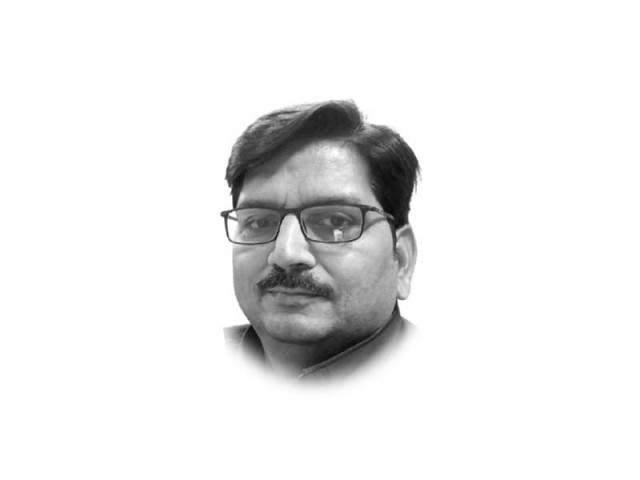Creation or reproduction
A storyteller is hired by a businessman who counts sheep but to no avail.

Last weekend, I watched a Bollywood movie The Storyteller, presuming the movie would be about the art of writing or telling of stories, but it was way more than that. A storyteller is hired by a businessman who counts sheep but to no avail. The insomniac businessman believes that storytelling, as in childhood, can lull one easily into slumber.
The relationship between the two men is antipodal because of their geographies, backgrounds and, most importantly, their philosophies of life. The storyteller expresses his socialist proclivities through his super-casual digs at capitalism.
The businessman is a lonesome man who admittedly doesn't understand much beyond money and accounting books. At one point, he even derides the storyteller's art by saying, "Yeh duniya sochne waalon ki nahin karne waalon ki hey" i.e. this world is for doers not thinkers.
Fast forwarding, the storyteller finds one of his stories published in a local magazine, but with a different pen name. He is shocked to see the picture of the businessman as the writer of the story. The businessman is charged with plagiarism not of the storyteller's own stories but of legendary writers like Rabindranath Tagore.
In fact, the storyteller, after finding his own stories being passed off as that of the businessman, had started telling him the stories of legendary writers. As the businessman was not an educated person, he couldn't see through the storyteller's revengeful trap.
The businessman wanted to impress his former love interest, who values artistry over business, that he had become a man of letters. He loses his newly achieved attraction to his love interest who leaves him for good, this time more convinced than ever of his capitalist mentality.
Professor Joshua Spodek talks of a litmus test of originality. For a man seeking genuineness and authenticity, nothing reveals the lack of either better than a woman. Because few things are less attractive to a woman than inauthenticity and disingenuousness. She will walk away if we talk different than we behave. Likewise, few things are more attractive than authenticity and genuineness.
At the end of the movie, both the characters are shown writing a story of each other as both were in possession of a stimulating painful experience. The businessman had had a collection of unread classical books to intellectualise himself through osmosis. But he couldn't get any impetus to tell or write stories to woo his lost love.
Similarly, though the storyteller could conjure up fantastical tales with the slightest inspiration, he lacked the visceral urge to pen down his feelings into a cerebral treat. The path to creating art starts with the search inside for who we are. Therefore, the greatest takeaway from artistic production is in discovering ourselves and the path to get there.
The movie subtly juxtaposes two economic philosophies through its characters. The storyteller represents a socialist ethos where creativity is shared, communal and accessible, whereas the businessman embodies capitalism's penchant for owning and monetising intellectual property.
These days, the talk of the town in and outside the realm of technology either demonises AI as a dystopian force or romanticises it as a utopian fantasy. The movie starts with a quote by Man Ray, an American visual artist: "To create is divine, to reproduce is human." Released at a time when AI tools like ChatGPT and DeepSeek are revolutionising content creation, the movie serves as a poignant exploration of plagiarism and the capitalist commodification of creativity.
Unlike creation, which is seen as an original act, reproduction is often dismissed as derivative, mechanical or inferior. Outsourcing creativity to algorithms will dilute the value of human imagination: intellectual labour to gain originality will be replaced by convenience.
Human ingenuity mirrors divine craftsmanship. Creativity, as philosopher Hannah Arendt noted, is an expression of 'natality' - the capacity to begin anew, to inject originality into the world. Arendt claims that our natality - our condition of being born - is the source or root of our capacity to begin, i.e., of our capacity to initiate something new and novel.















COMMENTS
Comments are moderated and generally will be posted if they are on-topic and not abusive.
For more information, please see our Comments FAQ